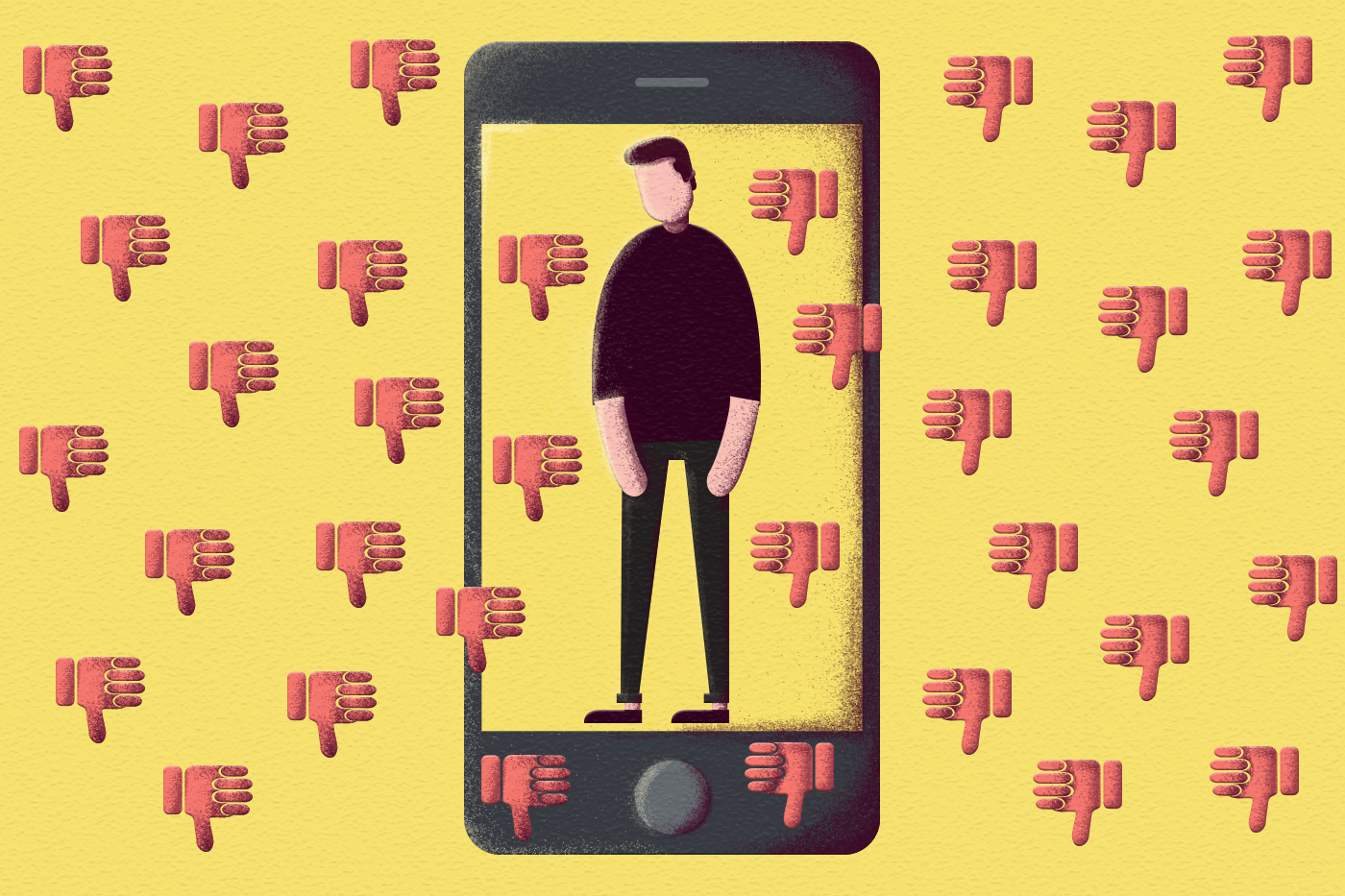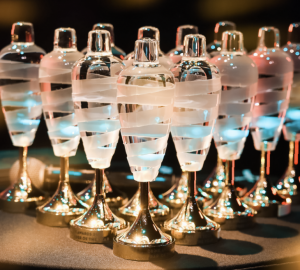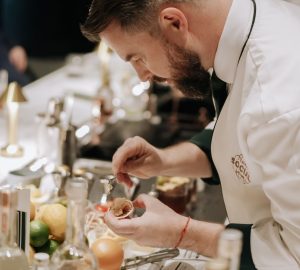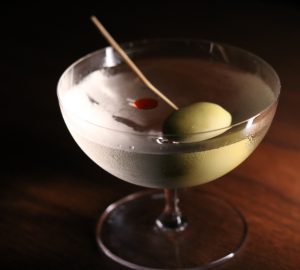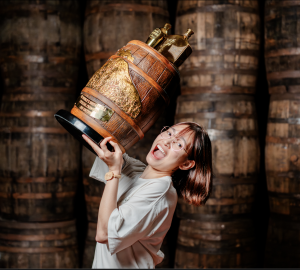Shanghai’s The Nest got accused of an anti-lesbian hate crime, underwent trial by social media, and has come out the other side looking for a positive. By Dan Bignold.
DRiNK’s editorial calendar was meant to be running a profile of The Nest this week, the same cover story that first appeared the final print issue in China last autumn. The Shanghai bar-restaurant – or gastro-lounge as it terms itself – was approaching its third birthday and after scooping several awards, including best high-volume bar and restaurant bar at the 2016 Drink Magazine Bar Awards, an interview with founder Mark Klingspon was well merited.
Then something major happened. On the night of December 17 last year, the second night of festivities planned to celebrate the bar’s third birthday, with 1 RMB oyster specials and huge crowds of pre-Christmas revellers, two female guests appeared to go into the ladies washroom, followed by one of The Nest’s staff, a service manager named Nicole, who mistakenly thought one of the guests was male. The three individuals then became embroiled in an argument that first turned physical and eventually ended with security guards, the arrival of police, statements being taken at the local station, and then the following day – and this is where things really unravelled – the bar being accused of beating up its guests and carrying out an anti-lesbian hate crime.
On December 18, a member of the city’s LGBTQ community produced a flyer calling for an immediate boycott, which was initially circulated among a 500-strong LGBTQ WeChat group, then to a women’s rights group, then to an anti-violence group, with The Nest’s page on Dianping (China’s biggest restaurant listings website) targeted with bile, unsubstantiated claims and perhaps worse for such a high-profile business in the age of online reputation-building, wave upon wave of zero-star reviews.
“On Dianping, someone wrote: ‘Number one dish is a security guard punch in the face’”
“Our Christmas Eve was 33 per cent down from last year,” says Klingspon. “New Year’s Eve was 50 per cent down – a disappointment. Our business overall was about 25 per cent down over the Christmas period. We had an unusual number of cancellations, which I think was part of the campaign to harm our business – to make phantom bookings then cancel. We’ve had threats online of physical protest, which is scaring other potential guests. On Dianping, someone wrote: ‘Number one dish is a security guard punch in the face.’”
So, instead of just posting the original profile story about the first three years at The Nest (although you can still read that here), in the wake of the crisis, we decided to re-interview Mark Klingspon about what happened – to find out what a leading f&b business did when faced with this sort of totally unexpected and potentially catastrophic event.
A typical crisis management play in the aftermath would be to accept liability quickly and sincerely, whatever the facts, then work to re-build relationships with the individuals or group affected, and finally show the world how, as an organisation, you have learned from the experience to make sure it never happens again. Klingspon was totally OK with the third of those steps, and even the second (he reached out and met both the affected guests as well as LGBTQ community leaders, “because I wanted to look them in the eye and hear their story face-to-face”). But something was bugging him about the first step: liability.
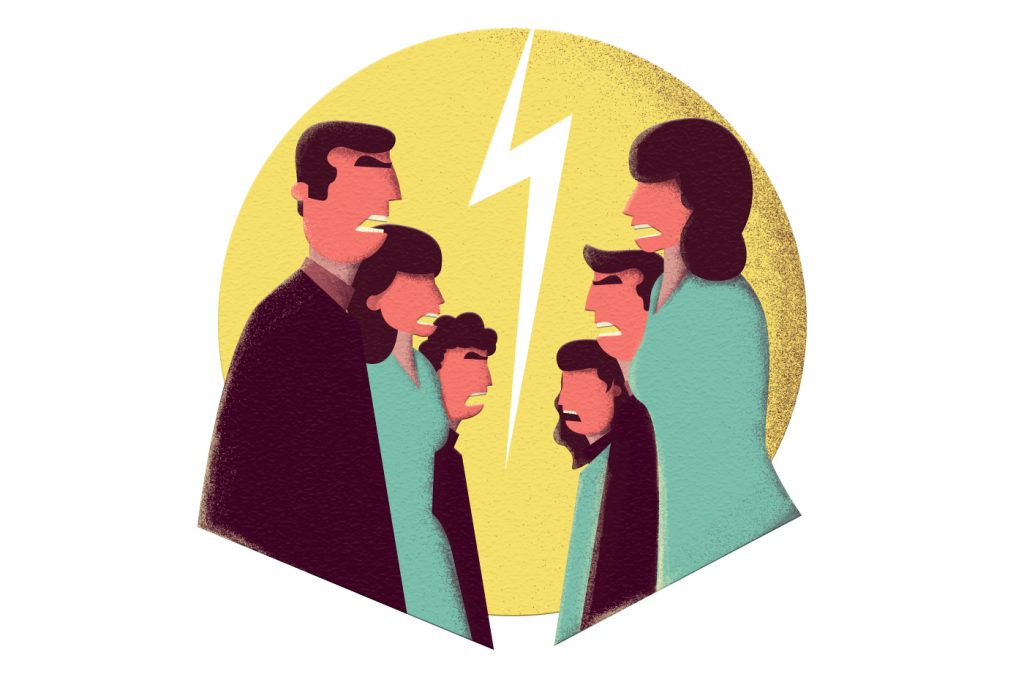
“If we had accepted what they had said, I would suffer the consequences. I would put my head on the block. I would just apologise, fall on our sword, hold an event. I did consider all that. But, I’ve known these staff for a number of years in some cases and I couldn’t believe we had done that. It was totally out of character both for the accused team members and for our business philosophies as a whole,” says Klingspon. “I didn’t really want to get into a he-said-she-said, and maybe at that point I had already lost the PR battle, but finding the truth was just more important.”
So he issued an initial statement on December 18, condemning hate crimes and intolerance (but not yet admitting to either) and promising a fully comprehensive investigation. Klingspon then worked through CCTV footage covering the guests’ table and outside the washrooms – but not crucially inside the washrooms, where The Nest doesn’t have cameras (although not illegal in many countries, filming inside toilets poses many legal complications for bar owners). He found and interviewed an independent witness. And he asked all staff involved to re-enact what they saw or remembered happening during each second of the incident (separate to one another, so they couldn’t influence).
“If we had accepted what they had said, I would suffer the consequences. I would apologise, fall on our sword, hold an event”
He then went back to the police with his new evidence – including video, The Nest’s staff own hospital reports, and independent statements – and asked police to re-open the case. Because, and here’s the strange part of the 20-hours-later accusations of beatings and hate crimes, on the night itself the two guests did not press charges or go immediately for medical attention. As Klingspon argues his video evidence suggests, the two guests left the washrooms on their own accord, escorted by security (at a distance) and returned to their table and friends in the main bar with absolutely no signs of duress. “None of their friends show any sign of examining any injury or remonstrating with security,” says Klingspon. “They go back to their table and sit calmly. They are finished.”
Earlier this month, The Nest issued what it called a final statement on the matter. In it, Klingspon highlighted how the police were satisfied in the wake of all the new evidence gathered to stick to their original decision on the night. “Based on the complete and independent police investigation and the settlement agreement, there is no case for wrongdoing against The Nest or its injured manager,” says the statement. “There was no official claim made or evidence found whatsoever of any security guards beating any guests. There was no official claim or evidence found whatsoever of any discriminatory or hateful language used by The Nest team. The Nest categorically and vehemently denies these malicious falsifications spread in the media.”
And that’s where Klingspon is turning his attention next. Weighing up action against the two guests themselves, he realised the difficulty he’d face proving they were responsible for the social media storm that came next. So he has decided to go after the other individuals who started the campaign instead, collecting their online conversations, the e-flyers they created and promoted, as well as postings on Dianping. He’s had all these – 2,000 items – notarised and has handed them to a lawyer. “I am talking defamation of character, respective of online violence and spreading hate,” says Klingspon. “I would say I want to fight back against the social media environment we live in.”
It should be noted that when DRiNK contacted one of the two guests involved, Lisa Chang, she maintained their side of the story. Asked for comments on the final statement, she said: “I am speechless. It is a bit over the top when we are the injured parties. How come their staff are allowed to hurt their customers? The final statement was not covering the truth, but only covering what they needed it to cover.” The two guests did go to hospital, the following day, and shared photos of their injuries (cuts and bruises – the same, Klingspon notes, sustained by Nicole) and medical reports with the social media accounts that then launched the boycott campaign. The alleged story, and photos, even appeared on the Pink News website in the UK. (Perhaps explaining why they didn’t press charges on the night, the pair claimed in the media that police told them to simply work out the problem with The Nest.)
But after the initial storm died down, Klingspon’s own doubts were confirmed by the guests’ lawyer’s own admissions. “Their lawyer actually came to the police-led mediation meeting that they were meant to be at, with three statements: he admitted security didn’t beat them, that The Nest team didn’t make any anti-lesbian comments, but then requested that all parties remain quiet,” reports Klingspon. “But I won’t sign a gagging order, because one day if Nicole wants to press charges, The Nest will respect and support Nicole’s right to go public.”
“If a staff member is involved in some sort of conflict, the crucial thing is to get our team out of the situation, even if it’s me”
He has left it open for his colleague Nicole whether she wishes to press charges against the two guests. Because, beyond the damage to his business caused by unsubstantiated claims and the witch hunt online, plus the unease it has caused to staff morale – he put all staff involved on paid leave until the matter was finally resolved, following threats against them – the twist to this story is the alleged manner in which Nicole herself was abused, not the guests. Her version of events is that the pair launched a physical attack on her inside the washroom – not the other way round – after she had tried to apologise for her mistake. However Klingspon, despite the material he’s gathered, and his own conviction, doesn’t think the case can be made – because of a lack of cameras in the washroom. “I don’t think there’s evidence in either direction to make that possible. It’s her word against theirs.”
The specific nature of the alleged events inside the washroom, however, left him pondering the risks facing members of the f&b community while doing their jobs. The result is his decision to launch a campaign to celebrate the people who work in the Chinese hospitality industry: #iamyourserver. “From the industry side, I want this campaign to be about about human dignity and winning respect for people at all levels, for people who work in the coat check, for dishwashers, for ayis. I am worried by this sense of entitlement among some guests that think they can treat service staff like slaves. I find it so wrong.”
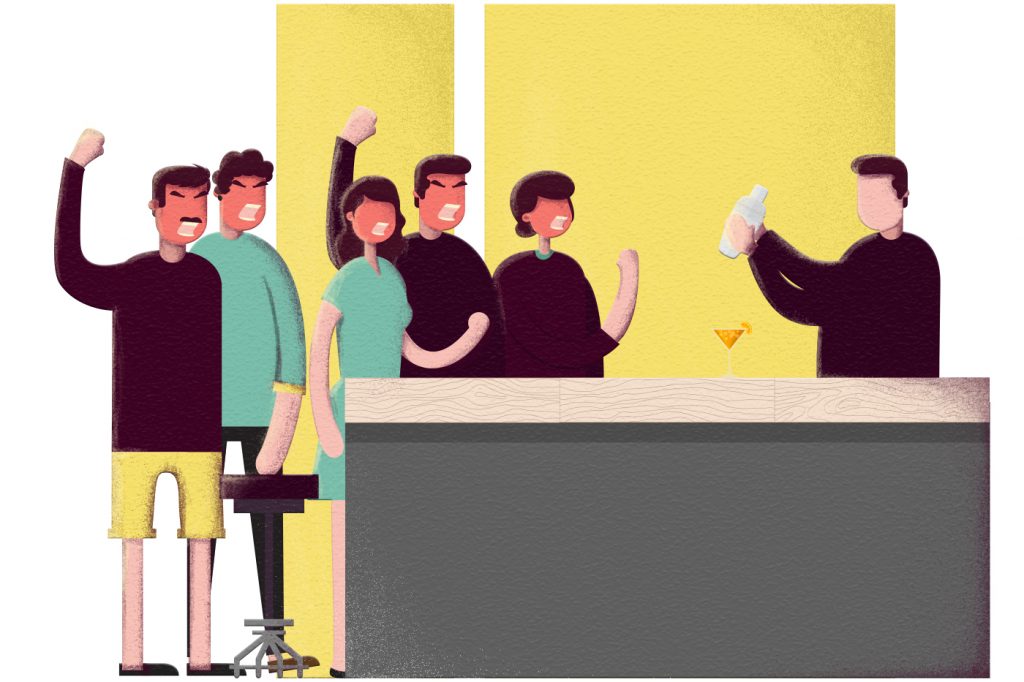
The plan is to produce a series of video portraits looking at different people working in the industry, and not just at The Nest, to reveal their personalities, their lives, their ambitions, and their pride in what they do. “I want to send it out, not with a ‘Don’t abuse this guy’ message – but ‘He is a person, and he’s serving you.’ It’s about principles. If I had fired Nicole – she’s been working in f&b for over 10 years – how would she go find her next job? And all because someone wanted to humiliate her for making an honest mistake.”
On a practical level, he’s also updated the team’s internal SOPs on how to deal with a crisis during service involving an attack by guests on staff. “We’ve always said you can only touch guests as an absolute last resort – but if a staff member is involved in some sort of conflict, the crucial thing is to get our team out of the situation, even if it’s me. I’ve told security, in case of such scenario, that they will never get in trouble for physically removing me from such situation. Instead of spending minutes after the attack arguing in the washroom, Nicole should have been immediately taken to the office and guarded there until the police arrived.”
Ultimately, Klingspon regrets how The Nest became the centre of a storm, including an eruption of real anti-lesbian abuse shouted across social media in the wake of the incident going viral. “I don’t want to harm LGBTQ rights either,” adds Klingspon. “But it wasn’t an LBGTQ issue. Bad – or opportunistic – people have made it about that.” Instead he wants to move on and, as the statement says, “improve safety, understanding and tolerance”. “I just truly wish for the industry and its servers, and for the LGBTQ community affected by this whole terrible thing, that there can be some positive outcome for everyone.”


